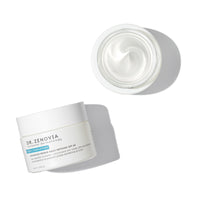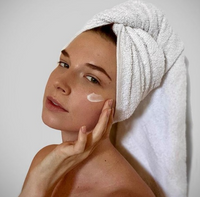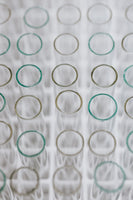6 Winter Skin Care Tips to Get You Through the Cold Season

Just like you change up your wardrobe with the transition from one season to another, it’s wise to do the same with your skin care regimen. Why? With the changes in climate, come stark changes in how our skin reacts to the elements—both indoors and outdoors. During the winter, for example, the skin tends to become drier, due to the coupled effect of frigid temperatures and indoor heating on blast. To accommodate the changes brought on by wintertime, Dr. Zenovia recommends upping your use of moisturizing products to fortify the skin’s protective barrier. With more protection, your skin becomes less vulnerable to the elements brought on by the winter weather.
6 Winter Skin Care Tips
To optimize your skin health during the winter months, here are six winter skin care tips Dr. Zenovia recommends following.
Invest In a Humidifier
If you don’t already own a humidifier, or aren’t using one in your bedroom while you sleep, now is a great time to make a purchase. “When the air is dry and moisture isn’t present, the air will draw moisture from its environment, including your skin,” says Dr. Zenovia. “A humidifier helps increase the hydration levels indoors and can help keep your skin hydrated and healthy, especially during the winter months or if you live in a dry climate.”
Choose Skincare Products for Your Skin Type
This is an important rule to follow no matter the season. If you have dry skin, for example, you’ll want to shop moisturizing products that are rich in emollients, including shea and cocoa butters and plant oils. Dr. Zenovia's Peptide + Ceramide Repairing Moisturizer contains a unique combination of bio-equivalent ceramides, potent humectants and emollients that help attract, retain, and distribute moisture to fortify the skin's protective barrier and combat dryness for a glowing, radiant complexion.
If you’re more oily, your skin may break out from such heavy moisturizers, so it’s best to opt for lighter lotions and serums that allow your pores to breathe. Dr. Zenovia's Aloe Vera Blemish Soothing Moisturizer is an ultra-light, oil-free moisturizer that features skin soothing Squalene and a powerful clinically curated antioxidant blend to provide long-lasting hydration and superior free radical protection.
Limit Shower Time & Hot Temperatures
Few things feel better on an incredibly chilly day (especially when it’s snowing) than a long, hot shower, but this is a quick way to score yourself some super dry skin. Hot water, especially coupled with a lengthy shower, deplete your skin of the natural oils that keep it supple and healthy, leaving it even more vulnerable to the cold elements. While warm showers are fine, it’s best to keep them to a maximum of 10 minutes.
Don't Skimp on Sunscreen
Even on the coldest, cloudiest winter days, sunscreen should not be optional. “Don’t be fooled by the overcast weather,” says Dr. Zenovia. “The sun’s harmful UV rays can permeate the clouds and cause damage.” It’s best to apply sunscreen with an SPF or 30 or higher to protect your skin against skin cancer, brown spots and fine lines. It’s also a smart idea to use a mineral sunscreen, especially if your skin is sensitive, as chemical sunscreens can be particularly irritating during the winter months. Dr. Zenovia's Vitamin C Brightening Moisturizer SPF 30 delivers transparent nano zinc-oxide broad-spectrum mineral protection from harmful UVA/UVB rays, free radical damage, and environmental stress for radiant, even-toned skin. Clinical grade Vitamin C-Ester visibly helps minimize the appearance of dark spots, discoloration, fine lines, and wrinkles associated with photoaging.
Drink Enough H2O
As they say, “you are what you eat—and drink.” If you’re not drinking enough water, your body is going to be dehydrated and this will also affect your skin. Follow the 8-8 rule: Aim to drink at least eight 8-ounce glasses of water daily to maintain your hydration levels.
Get Enough Sleep
Any time of the year, sleep is crucial to skin health. While your body is at rest is when your skin cells do the majority of their regeneration and turnover, so it’s essential that you’re getting enough sleep if you want optimal skin health. The National Sleep Foundation recommends getting at least 7 to 9 hours of uninterrupted sleep each night—your skin will thank you!
Written by Jenn Sinrich, Freelance Writer & Editor









Leave a comment